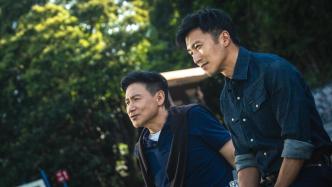
Warning: This article contains spoilers
I have dated Director Qiu Litao so many times in a year. How can I not admit the magic of fate? I used to criticize and complain about Director Qiu, but after watching "The Customs Front", I have changed my ways and am completely convinced. The reason is that Director Qiu is really a role model for workers and a role model for our generation. I admire him!

Poster of "Customs Front"
What are the qualities that an excellent worker must have? First of all, of course, he must be "good at handling things". When facing the client and the boss, workers must package their work in a bright and dazzling way, and they cannot just work hard like an old ox.
Director Qiu is an expert in this area. From "Drug War 3" to "Assassination Storm", from "Moscow Operation" to the current "Customs Front", Director Qiu is best at creating a grand pattern, mysterious suspense and extremely attractive gimmicks. The opening of "Customs Front" is quite bluffing, with conflicts between Middle Eastern countries, terrorist organizations openly threatening Hong Kong's social security, and the appearance of "insiders" within the Hong Kong Customs. All kinds of elements are piled up at once, firmly nailing the audience to their seats.

Zhou Zhengli (played by Nicholas Tse)
Not only that, Director Qiu also added rich and complex settings to the characters in the film. For example, the protagonist Zhou Zhengli (played by Nicholas Tse) is a passionate young man (middle-aged?) who insists too much on principles and bottom lines and does not know how to get along with others. He is frustrated in both love and career and is in a state of confusion;
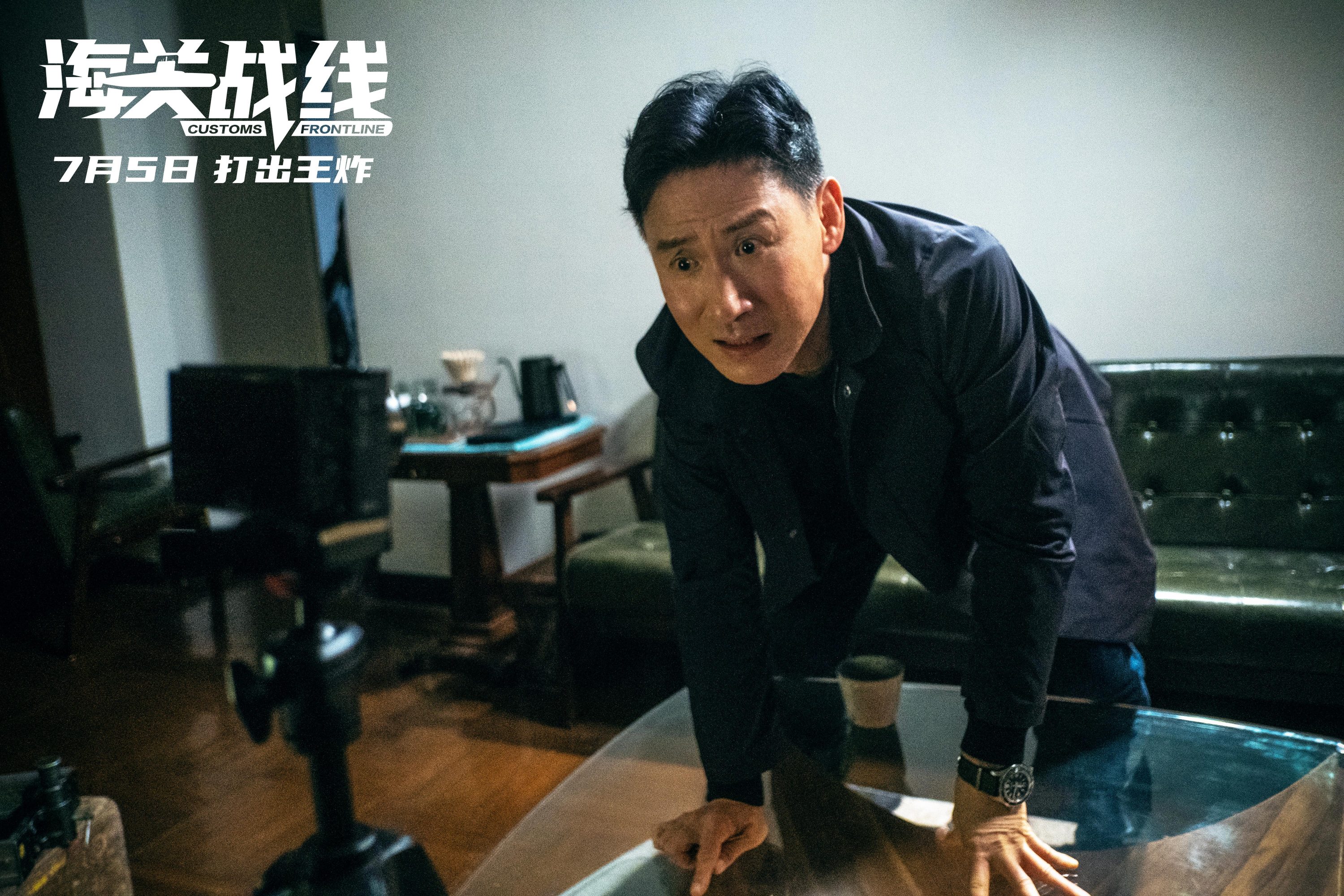
Zhang Yunan (played by Jacky Cheung) accidentally contributed another emoticon pack
Zhang Yunan (played by Jacky Cheung) is a good guy in the workplace. Because of his overly gentle temper, he is caught between his lover Shao Yaying (played by Lin Jiaxin) and his boss Guo Ziqiang (played by Wu Zhenyu), which leads to serious psychological problems.

Shao Yaying (played by Karena Lam)
In other words, the action, emotion, scenes, and thoughts are all there. No matter how you look at it, "The Customs Front" is of good quality. If Director Qiu can carefully and patiently carve it out and organically connect the above clues, it is possible that this film will really bring a lot of surprises to the audience.
But wait, if you really work diligently and conscientiously, you are not Director Qiu. A good worker should not only do the work well, but also know when to stop and when to stop. In a word, what workers should pursue is "cost-effectiveness". We must not work at a loss.
So, Director Qiu immediately took out the second trick in the workers' secret book, which is to be perfunctory. After the film entered the middle, the plot began to gradually collapse.
You thought that Shao Yaying and Guo Ziqiang would use different tricks to compete for the position of deputy director, leading to a wonderful office political struggle in the style of "Cold War", but unexpectedly, Guo Ziqiang inexplicably went offline in the second half and went home after get off work;
You thought the Hong Kong Customs's catching of the "traitor" would be as twists and turns and unpredictable as "Infernal Affairs", but unexpectedly, the "traitor" soon revealed himself, making the previously constructed suspenseful atmosphere disappear without a trace;
You would think that the war between the two Middle Eastern countries over competition for resources would have a significant impact on Hong Kong's political security, and even lead to a "Equator"-style political conspiracy. But until the end of the film, the only thing that the Thai policewoman Ying (played by Liu Yase) said was that she "would write a news report."
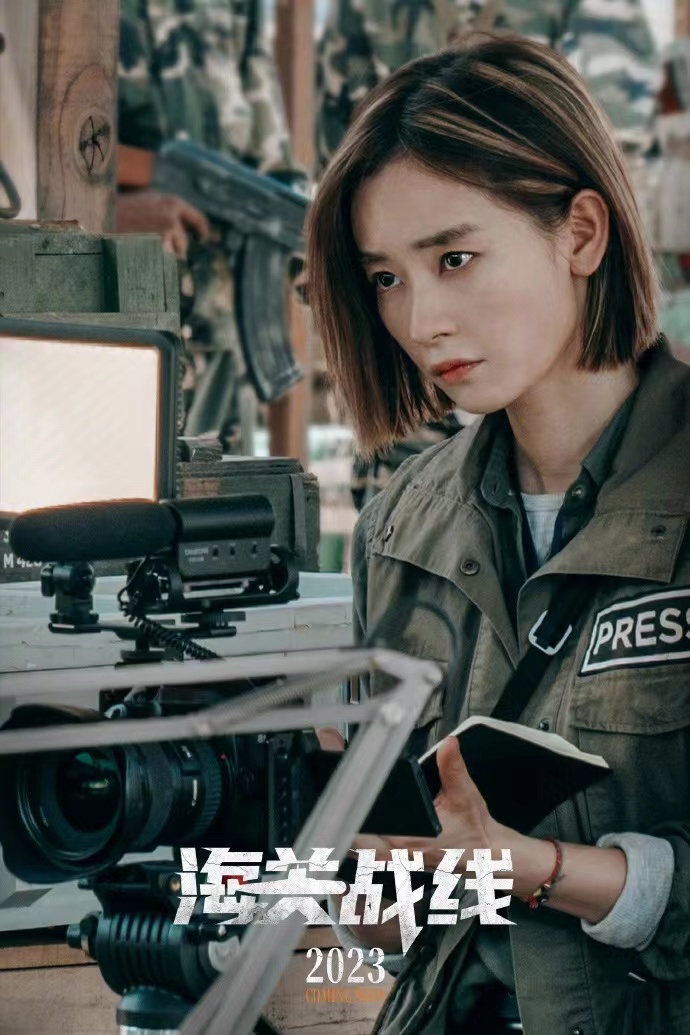
Thai policewoman Ying (played by Liu Yase)
In short, the more anticipated it is at the beginning, the more speechless it is at the end. The whole film is full of various details that seem useful but are actually useless (for example, the express delivery sent by Jacky Cheung to Karena Lam seemed to have a "reversal", but it turned out to be completely unnecessary) and characters (for example, who can tell me what exactly the roles of Francis Ng and Jasper Liu are in this film).
No matter how many holes he had dug before, Director Qiu never thought about how to fill them. He just wanted to finish the job as quickly as possible. Not only did he save a lot of trouble, but he was also incredibly efficient at work. He is truly a model of a successful worker.

Guo Ziqiang (played by Francis Ng)
This is not Director Qiu's outstanding performance, but his consistent level. Think about the gangster boss in "Drug War 3" whose IQ is not up to the average level, think about the unsolved case in "Assassination Storm" that can't justify itself, and think about the superhero protagonist in "Moscow Operation" who can't die even if he falls from the plane, and everyone will suddenly realize that when it comes to serious nonsense, you have to look at Director Qiu.
After all, performance and results are important to workers, but more importantly, they need to learn how to report to their superiors. Similarly, the film's narrative is important, but more importantly, they need to learn how to give investors an explanation. Therefore, whenever the literary drama cannot go on, Director Qiu asks Mr. Nicholas Tse to perform a fighting scene for everyone, and if necessary, take off his clothes to show his body;
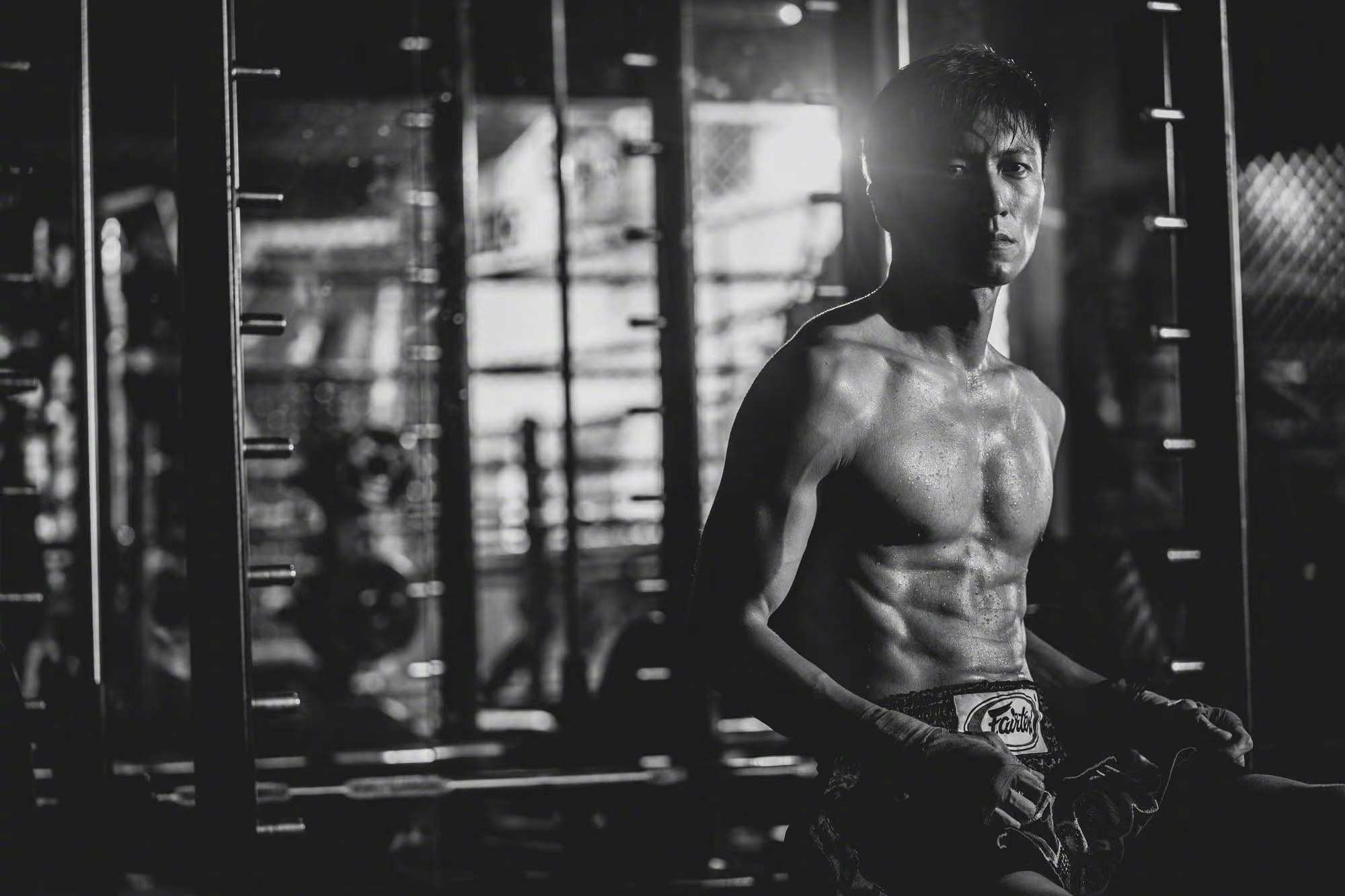
Nicholas Tse's figure must be shown
Whenever the logic was no longer self-consistent, Director Qiu immediately arranged a scene of bombing and bullets flying to cheer up the audience;
At the end of the story, when everyone's head was full of question marks, Director Qiu quickly asked the God of Songs to show off his singing voice and soothe everyone's soul with beautiful music... You see, we have everything we need, what are you waiting for, boss? Give us the money!
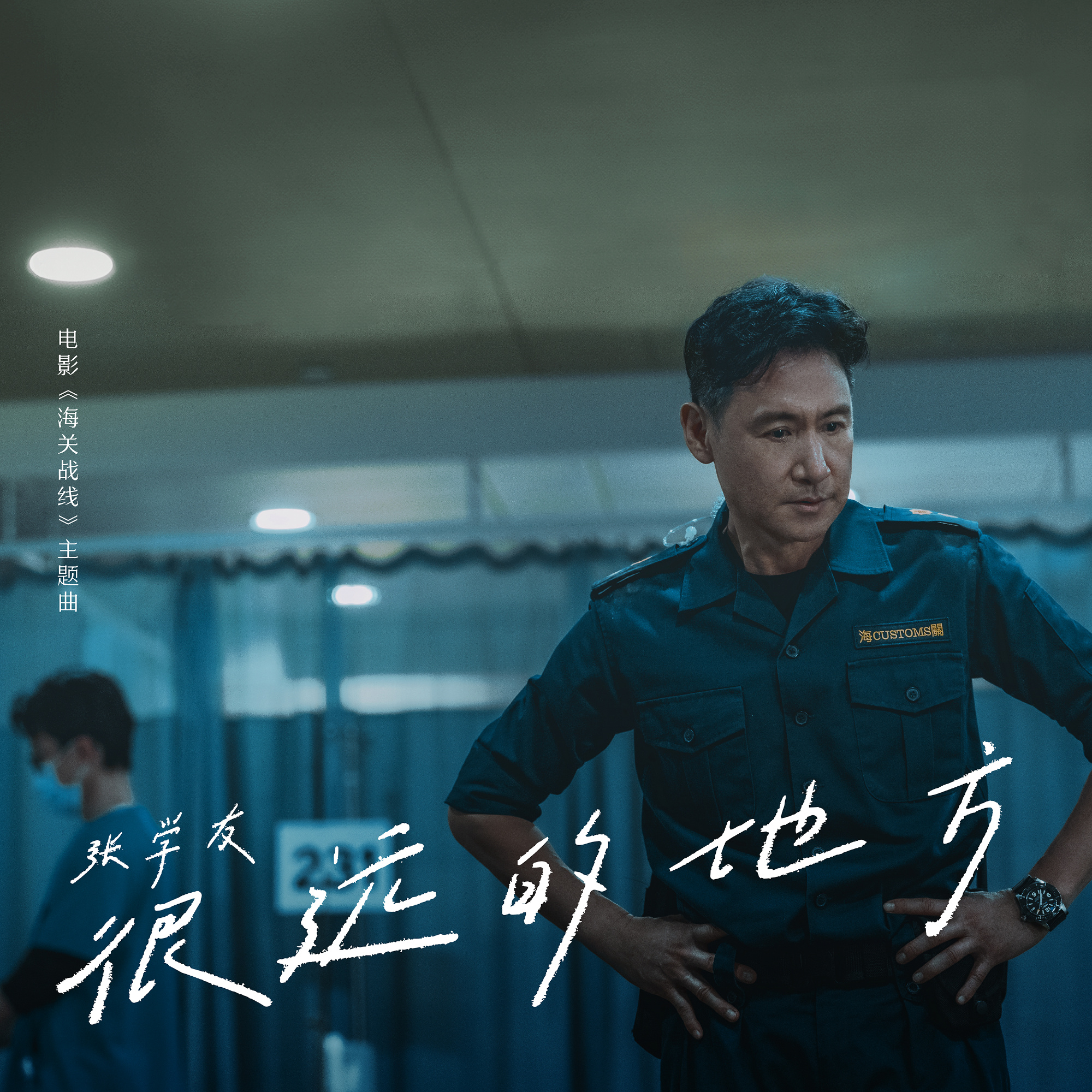
The theme song of the film "Far Away" sung by Jacky Cheung was composed by Nicholas Tse
Looking back, Jackie Chan jumped down from a high place in a department store along a pillar, shocking many audiences. This may be the essence of Hong Kong action movies in the past - the "dragon and tiger martial artists" used their flesh and blood to create classic scenes one after another, bringing the audience a sensory enjoyment of fist to flesh. However, this is no longer the correct working posture for workers. In "Customs Front", action scenes composed of editing and splicing can be seen everywhere, and they are "big scenes" concocted by CG technology visible to the naked eye. No wonder, what era is it, who is still stupid enough to do it? When artificial intelligence technology becomes popular in the film industry in the future, I believe Director Qiu can further improve his working speed.
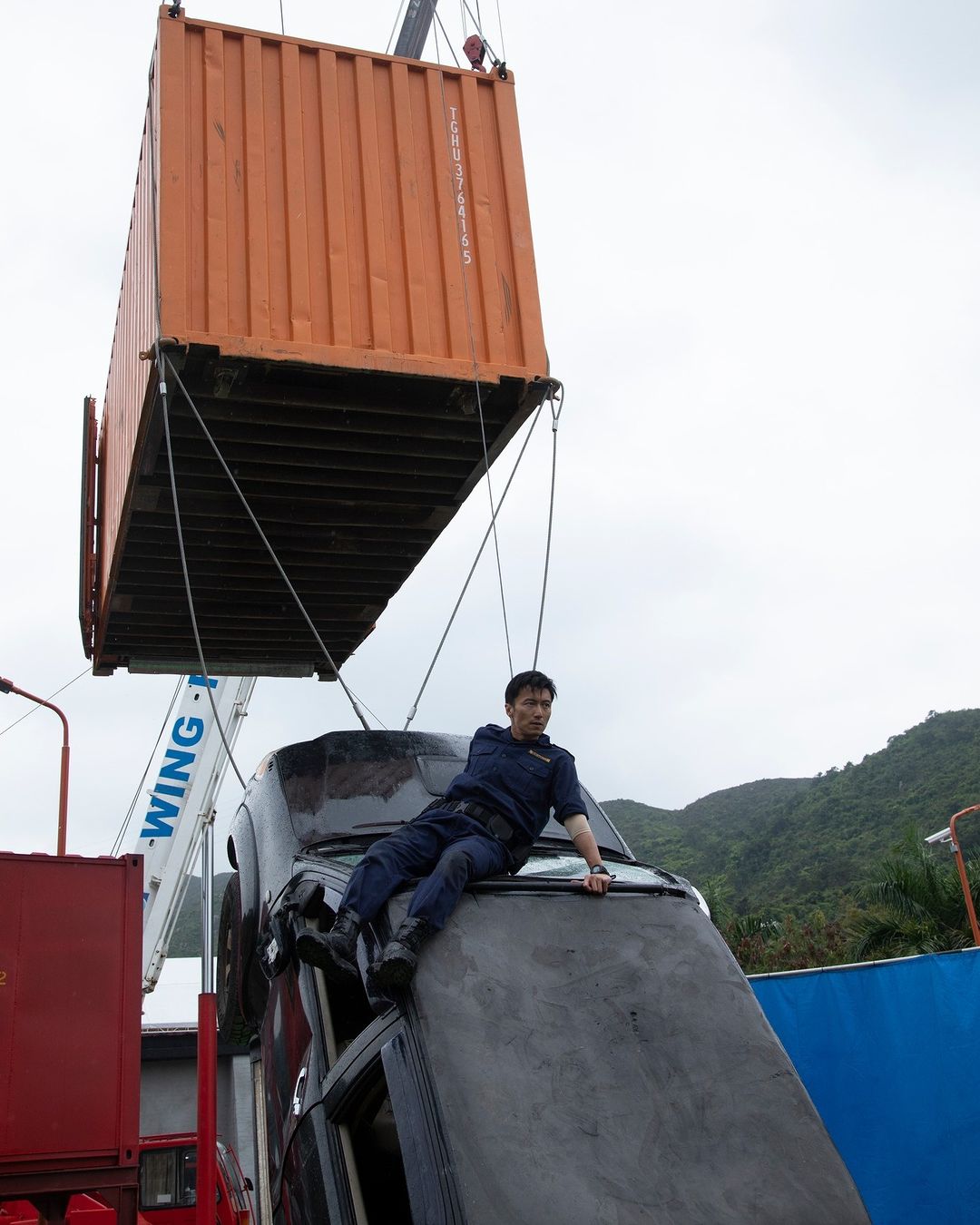
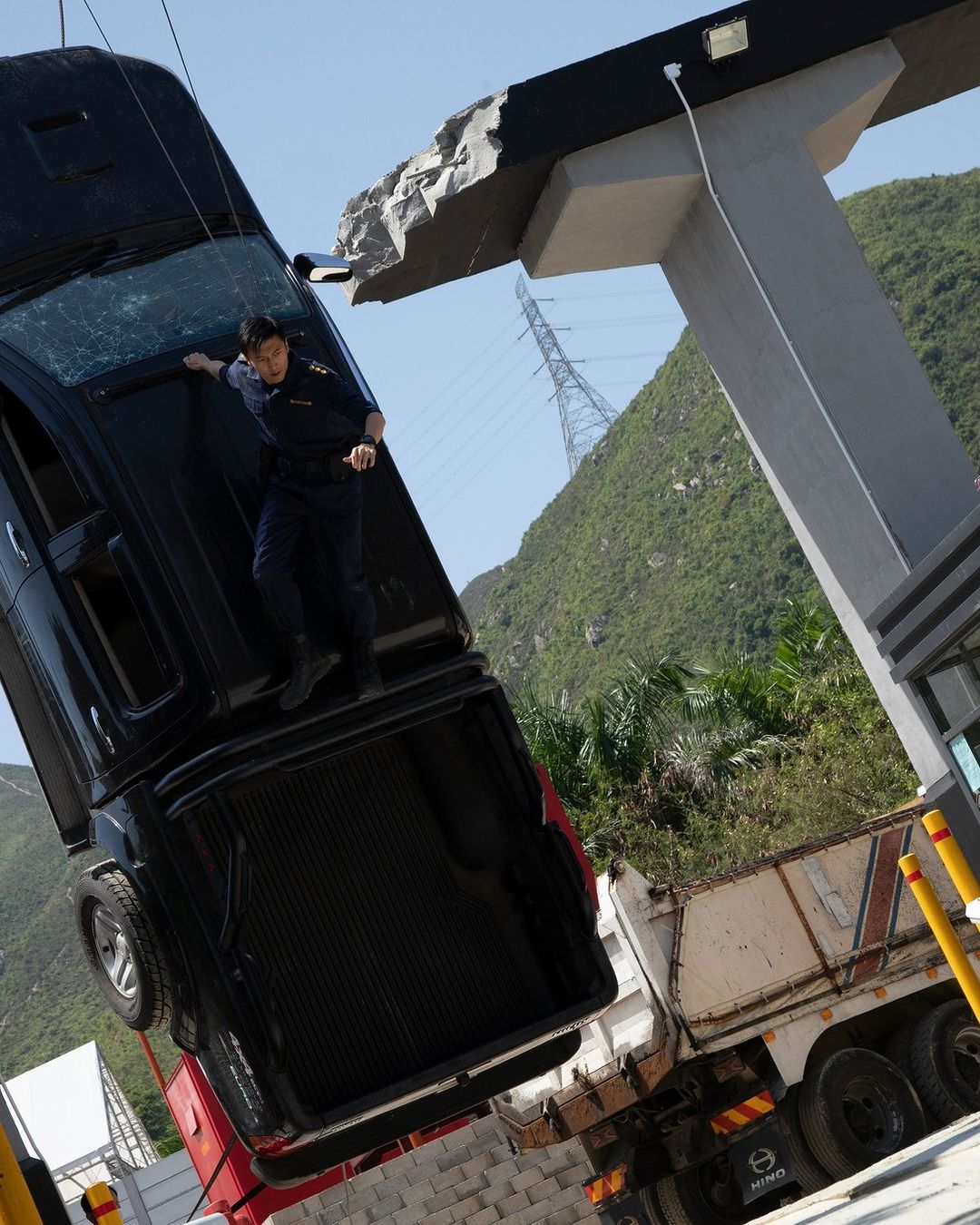
I still have to praise Nicholas Tse for his first time acting as a film action director. One of the gunfight scenes required him to display his agility when the high-altitude container tilted more than 45 degrees, and somersaulted out of the container. The difficulty index and risk factor were very high.
What workers care about most is "high pay, little work, and close to home", but don't talk about ideals and feelings. Director Qiu doesn't buy into that. Director Qiu is not incompetent. If he really works hard, he can make successful commercial films like "Shock Wave" and alternative classics like "Ebola Virus". But the problem is, since it can save some effort, why not do it? No matter how the movie is made, you just say whether the investment has a return, isn't that the truth?
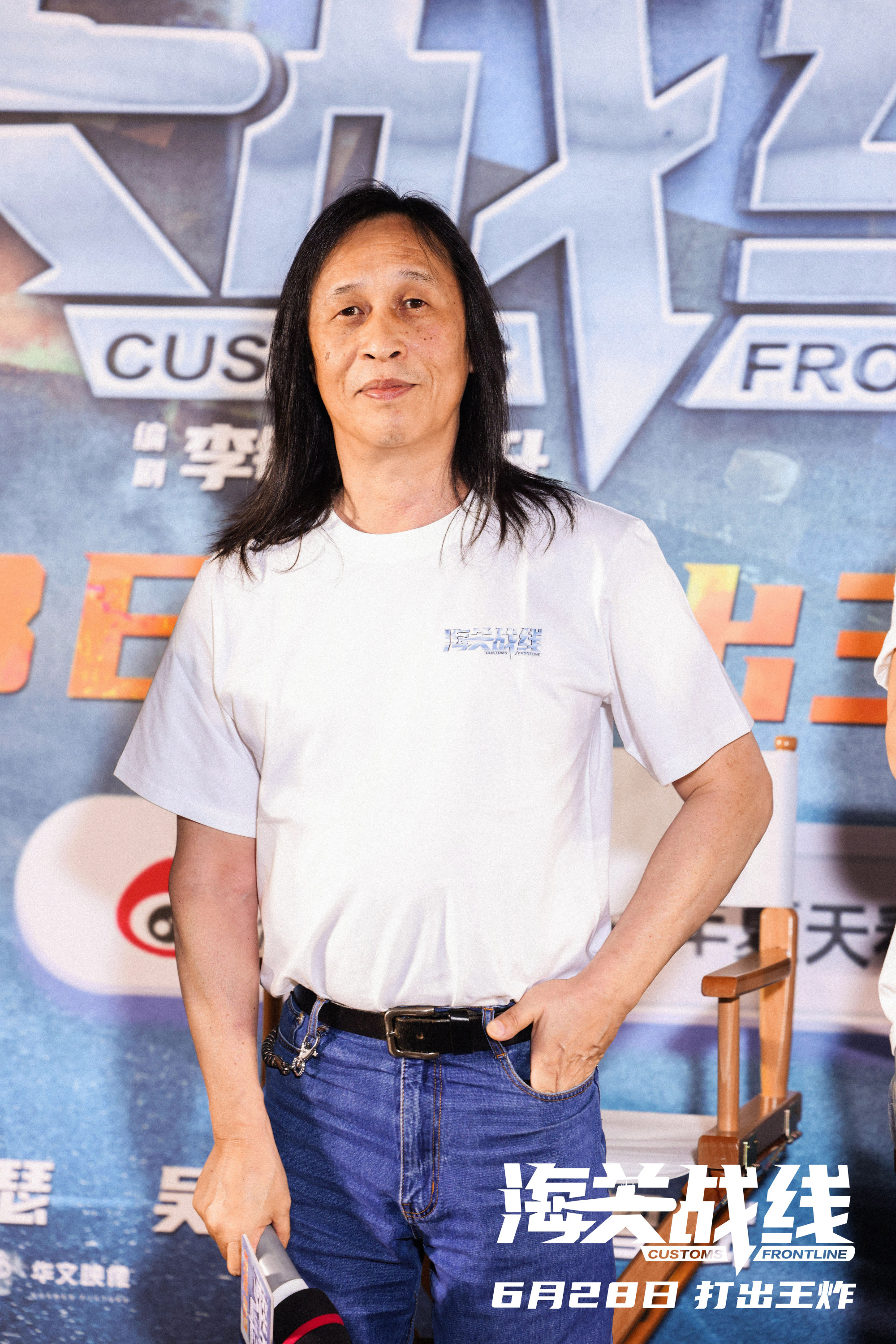
Director Herman Yau
Of course, it is not just Director Qiu who is becoming more and more like a successful worker. Those familiar faces who have been constantly arranged in Hong Kong movies in recent years seem to have gradually mastered the secrets of workers. They no longer have the high spirits of the past, and are only left with the improvisation of getting things done and going home. Many years ago, someone said, "It is becoming increasingly difficult to judge whether Antonioni's films or Jackie Chan's Rumble in the Bronx are closer to the essence of movies." But who would have thought that even Jackie Chan's Rumble in the Bronx is closer to a purely handmade work of art than some of the current movies.


